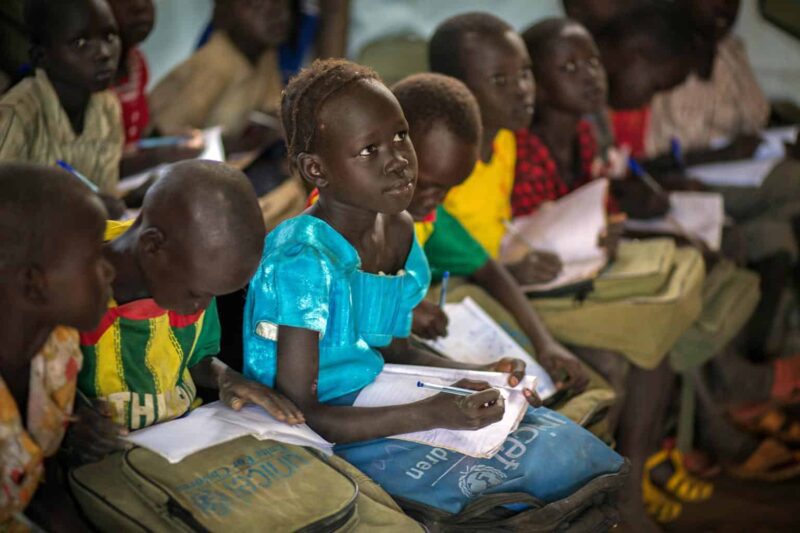Migration from South Kordofan Province in Sudan to Yida and Ajuong Thok and Pamir refugee camps in South Sudan is constant.
Internews received feedback from residents in the camps that a new policy prevented youth over age 18 from enrolling in primary school. Refugees didn’t like the policy and they blamed humanitarians. In response, Internews reported the feedback to LWF, the education partner and UNHCR. A radio program was produced and broadcast on Jamjang FM in coordination with the partners to clarify the issue.
Jamjang FM also broadcast a meeting between refugee leadership, officials from state and the national ministry of education, UNHCR and LWF. The meeting aimed to diffuse tensions caused by the new policy. During the broadcasted meeting, the minister of education discussed education policy in South Sudan, which says that children over 17 years of age shall attend alternative education. She said, “the region, including Nuba Mountains, have suffered from war for long time, and this has affected education systems; therefore, we are taking different approaches to encourage and provide possible education opportunities for all children even the eldest who have the desire to continue with their education.”
State officials applauded the support provided by humanitarian partners to provide education to refugee and host community children, urging LWF to continue supporting teacher trainings and the construction of more classrooms to create more conducive learning environment.
During the meeting, community leaders requested that humanitarian agencies, especially UNHCR and LWF, increase classroom capacity in both camps, saying that the existing classrooms are insufficient to meet the urgent needs of education. “Thank you for the support and cooperation with us to address some of education issues despite there are challenges that are represented in lack of funding,” said one of the camp leaders from Ajuong Thok.
Following the broadcasted meeting, leaders from both camps provided statements to Jamjang FM, urging the community to adhere to the policies set forth and keep their children in school. Refugees interviewed following the program said that they heard about the meeting results and they are relieved. “We were worried that our children were going to be dismissed from school because of their age, but now I am relieved after knowing they will continue in the school.”
In Jamjang, Internews’ Humanitarian Information Service (HIS) implements a community communication and engagement (CCE) project to increase information sharing. HIS – Jamjang is part of the Humanitarian Information Service. Since 2016, Jamjang FM has been supported by the US Department of State BPRM. Activities include operating Jamjang FM, a community-run humanitarian radio station in Ajuong Thok, conducting listening groups to gather feedback and actively engaging with the humanitarian community to share data using the CCE approach.
(Banner photo: Refugee children from South Sudan learn at a makeshift school. Credit UNICEF)
